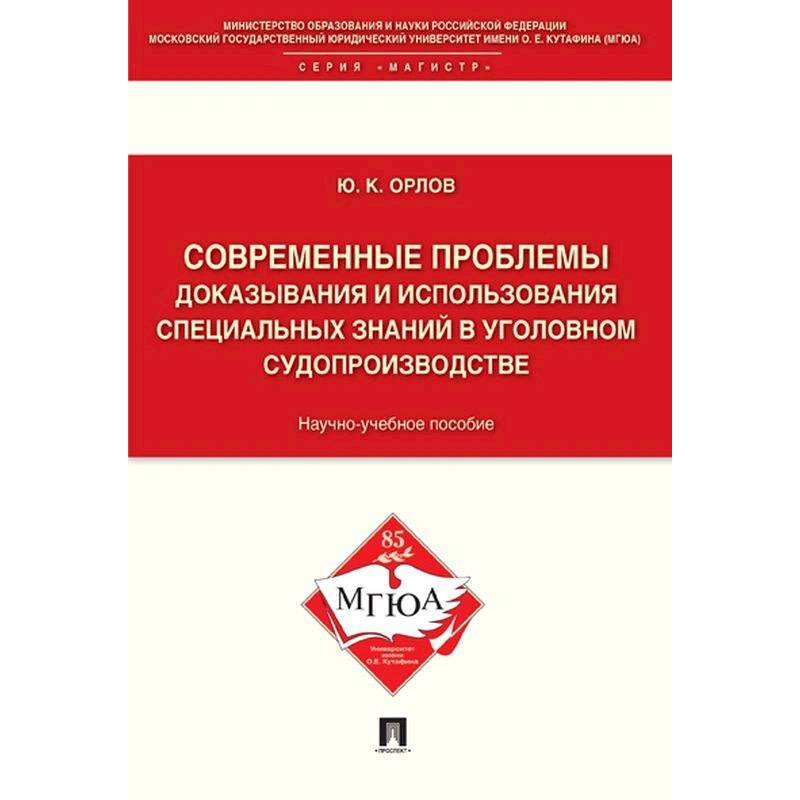Modern problems of proving and using specialized knowledge in criminal proceedings
Please sign in so that we can notify you about a reply
The manual is devoted to the most pressing, controversial and unresolved issues of proving and using special knowledge in criminal proceedings, according to which lively discussions are currently underway. It consists of two sections. The first considers general problems of proof. These include primarily the problems of truth in criminal proceedings. The concept of legal truth is criticized. Other concepts of truth are analyzed. The issue of the content of the truth established in the criminal case is considered. Other issues of proof are also investigated - about the concept
Evidence and its properties, the logic of proof is highlighted. The second section is devoted to the problems of using special knowledge in criminal proceedings. The issues of the forensic examination are considered - its subject, objects, tasks, subjects, special (procedural) types, as well as the expert’s conclusion and its assessment, in particular, a controversial issue of the admissibility of the use of polygraph in the production of examination. Separately considered the logical forms of expert’s conclusions. Some established provisions related to identification conclusions, as well as a universally recognized interpretation of diagnostic conclusions, are criticized. The probable conclusions of the expert, conclusions about the possibility of facts and others are also investigated.
The legislation is given as of March 2015.
A manual can be used in the conduct of a special course for students, graduate students in preparation for candidate exams, can be useful for teachers of legal universities, legal scientists and practical workers
Evidence and its properties, the logic of proof is highlighted. The second section is devoted to the problems of using special knowledge in criminal proceedings. The issues of the forensic examination are considered - its subject, objects, tasks, subjects, special (procedural) types, as well as the expert’s conclusion and its assessment, in particular, a controversial issue of the admissibility of the use of polygraph in the production of examination. Separately considered the logical forms of expert’s conclusions. Some established provisions related to identification conclusions, as well as a universally recognized interpretation of diagnostic conclusions, are criticized. The probable conclusions of the expert, conclusions about the possibility of facts and others are also investigated.
The legislation is given as of March 2015.
A manual can be used in the conduct of a special course for students, graduate students in preparation for candidate exams, can be useful for teachers of legal universities, legal scientists and practical workers
Author:
Author:Орлов Ю.
Cover:
Cover:Soft
Category:
- Category:Law & Legal
- Category:Politics & Social Science
- Category:Reference books
Publication language:
Publication Language:Russian
Paper:
Paper:Offset
ISBN:
ISBN:978-5-392-33064-5
No reviews found
